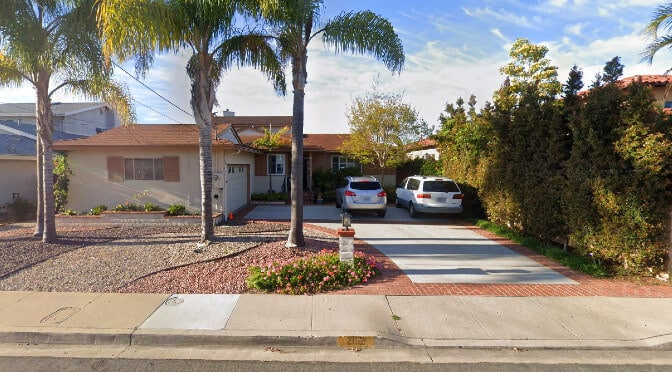
Can a Trust Get a Mortgage or Loan?
Can a Trust Borrow Money?
Can a trust get a mortgage or a loan? A trust can borrow money depending on the type of the trust and if the trust allows for loans being placed against the trust-owned property. The majority of trusts do allow for a mortgage or loan to be placed against real estate owned by the trust. There are many different types of trusts, but many trusts fall into the category of either living/revocable trusts or irrevocable trusts. If the inherited real estate was not within a trust it would likely be within an estate which would require the administrator/heirs to obtain a probate loan.
Living or Revocable Trust Loan
A trust can get a mortgage or loan from a traditional lender if the trust is considered a living or revocable trust. The original trustee who created the trust would still need to be alive for the trust to obtain the traditional mortgage or loan. Getting a mortgage on a property held in a trust is usually straightforward. The trustee would just need to sign for the loan as the trustee of the trust.
Irrevocable Trust Loan
When the original trustees of the trust have passed, the living or revocable trust becomes an irrevocable trust. Once the trust becomes irrevocable, no changes can be made to the trust . The successor trustee(s) named in the trust are now able to act on behalf of the trust. Trusts typically allow for successor trustees to encumber assets of the trust (obtain a loan) but traditional lenders will not lend against a property that is currently owned by an irrevocable trust.
The traditional mortgage lender will likely require that the property is taken out of the irrevocable trust in order to provide the loan. The property would have to be transferred from the irrevocable trust into the name of an individual before the traditional lender would be able to consider providing a loan against the trust-owned property. If there is only one beneficiary of the trust this should be possible but things are complicated when there is more than one beneficiary.
Mortgage Loans to Irrevocable Trusts
While traditional lenders cannot provide mortgages to irrevocable trusts, there are specialized trust loan lenders that provide loans against property within an irrevocable trust. These trust loan lenders are usually considered private money lenders or hard money lenders. They provide loans that are secured by real estate with a note and deed of trust just like a traditional lender. The main difference between traditional lenders and trust loan lenders is that the source of funds come from private investors as opposed to large institutions. The trust loan lenders also have flexible lending criteria and can fund much more quickly than traditional lenders (5-7 days vs 45-60 days).
Mortgage loans to irrevocable trusts are short-term loans and typically used to help the successor trustees and beneficiaries equalize the distribution of the assets of the trust. Mortgage loans to irrevocable trusts are often written for no longer than 12 months. This should be sufficient time to distribute the assets of the trust and payoff the loan. The loans are usually paid off within 2-3 months when the beneficiaries either refinance with a traditional loan, sell the property or payoff the loan with cash.
Successor trustees and beneficiaries need irrevocable trust loans for various reasons:
- Securing a 3rd party loan to prevent a property tax reassessment when the property transfers from parent to child (Prop 58 or Prop 19 in California)
- Dividing interest in the real estate among beneficiaries (trust beneficiary buyout) and equalizing the trust distribution
- Borrowing funds to make improvements to trust property and then sell
The successor trustee is able to apply for and sign the documentation needed to secure a loan against the trust property. The irrevocable trust loan would stay attached to the real estate when it is transferred out of the trust and into the name of the beneficiary who will be owning the property going forward. Once the title of the property is transferred into the beneficiary’s name, they can then get a mortgage from a traditional lender. Once the refinance is completed by traditional lender, the trust loan will have been automatically paid off.
The information provided herein is for educational purposes only. North Coast Financial is not providing any legal, tax or financial advice.
Recent Trust, Estate and Probate Loans Funded by North Coast Financial
Probate & Trust Loans Resource Guide
California Trust Loan Request
We will contact you to review the loan scenario and provide a quote.




